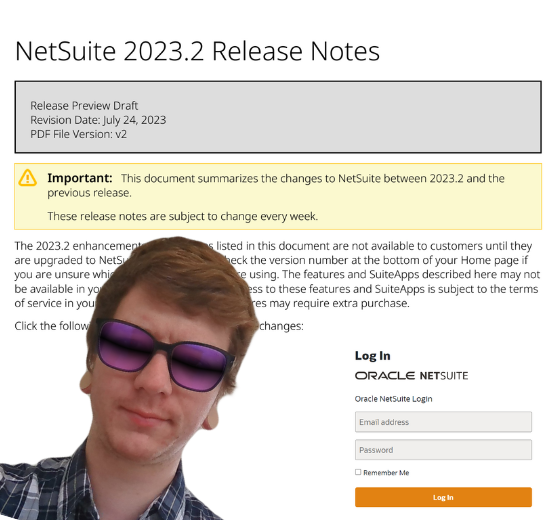With the dawn of a decade comes a new age of opportunity for SMEs of the nation; despite a prolonged period of uncertainty, the UK still remains one of Europe’s (and the world’s) most covetable locations to start a business. For those having done so already however, remaining competitive within an ever-shifting landscape is no easy feat, and entrepreneurs should take note of the trends set to dominate 2020 – and how they can be harnessed to support their strategy for growth. From the arrival of 5G to advanced ERP integration, here’s five trends for businesses keen to prove their brilliance this new year.
The user review is king
Whatever the product or service, however fleeting the review, SMEs should never underestimate the power of a positive customer experience. As a tool that does wonders for a company’s credibility, user reviews not only wield the power to foster loyalty in the long term, but can ultimately serve as the final assurance to customers ahead of sealing the all-important deal. For this reason, businesses should make it part of their best practice to request feedback post-transaction to use to their advantage. Whether this involves adding a dedicated testimonials page to the company website, or the use of quotations within social content, feedback from customers to prospects is an authentic way to connect to people from behind the screen.
Behold, big data
Big data is no longer the domain of big corporations. Now, smaller businesses seeking to broaden their horizons can utilise any number of pieces of information to better support their strategic decisions and improve the customer experience – from getting to grips with free software such as Google Analytics to more comprehensive solutions like ClearStory Oracle NetSuite Data designed to make metrics a cinch. A powerful activity (that doesn’t cost the earth), utilising big data can help start-ups hone in on their business goals – whether that’s a better understanding of customer behaviour, or the optimisation of marketing through automation. Smaller data sets from CRM and email marketing are a great place to start, providing teams with valuable opportunities to grow this insight from within. While a little investment further down the line would likely go a long way, it’s important to start small – but always think big.
The evolution of ERP
Now take that big data and integrate it using an Enterprise Management Planning (ERP) system. From inventory to manufacturing to resource management, ERP platforms such as NetSuite continue to pick up the pace this year, offering customers with effective solutions across a multitude of ever-changing sectors. First, as highlighted next in our list of 2020 business trends, the integration of AI will continue to support the move towards swifter, more seamless workflows and this is closely linked to one of our areas of expertise; implementing significant and meaningful automations in NetSuite to boost productivity and efficiency. For companies wishing to expand, a two-tier multi-subsidiary approach can provide a more streamlined operation and we predict the flexible, more cost-effective two-tier solutions will become more common for SMEs as more firms are taking note of the cost savings that the aforementioned automation delivers and the consequent cost to benefit ratio. The first NetSuite update of the year – Release 2020.1 – is expected to land in March or April 2020 and we’ll be reporting the highlights on our blog in the next couple of days, as we did about September’s NetSuite Release 2019.2. With many opportunities to look forward to, these fully integrated systems will transform business efficiency through 2020 and beyond.
The age of AI
With so many SMEs using artificial intelligence (AI) to bolster their processes (some without even realising it), it’s no wonder machine learning will continue to play a big part in futureproofing the businesses of tomorrow. For example, to maintain that personal touch round the clock, AI in the form of chatbots on websites can swiftly assist customers with their queries, improving the service offered by reducing waiting times. In-house admin/HR can also be streamlined with the help of AI, from workforce management software to cloud-based timesheets, and even the hiring process with online simulations to replace manual screenings; it can simply free up people’s time so they can focus on other areas of a business. Furthermore, manufacturing and distribution firms can take advantage of AI to predict and effect the ordering of components and products based on data such as seasonality and previous customer activity. Start-ups willing to embrace the dynamic solutions AI has to offer – as an enhancement, not a replacement – will not only benefit from increased productivity, but the opportunity to better evolve as the industry advances.
All hail 5G
5G may have landed in the UK, but what is all the fuss about – and why should SMEs stand to attention? In a world where communication is everything, 5G is already improving efficiency (and thus productivity) for many SMEs that have jumped on this bandwidth bandwagon. With average download speeds of 1Gbps, data transmission is vastly improved via the 5G network, making everything from instant messaging to video conference calls more seamless than ever – wherever in the world you happen to be reaching. For the innovations of tomorrow, businesses adopting technology such as augmented reality (AR), virtual reality (VR), and the Internet of Things (IoT) will also benefit from an equally streamlined performance.
Keep reading

What is a NetSuite implementation partner? How do you choose one?

Technology fit for total customer service in 2024

Retail and wholesale distribution: how to improve supply chains

Ditching Sage 1000: what you need to know from businesses that have done it

6 ways AI-ready Microsoft Dynamics 365 helps chartered associations serve members

6 retail and wholesale distribution challenges and how NetSuite solves them

The most exciting features in Microsoft Dynamics 365 2023 Release Wave 2

How to manage a new NetSuite Release: one expert's update process

What’s in NetSuite Release 2023.2?

